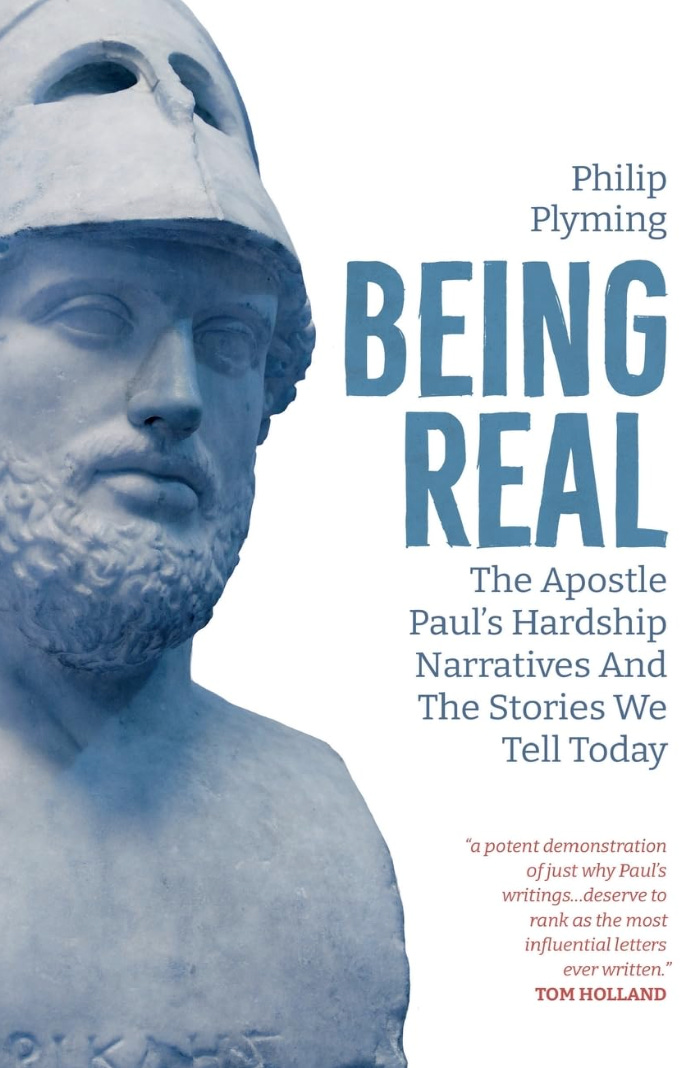The apostle Paul was driven, as we nearly all are, to make sense of his suffering, of opposition to the gospel and his church-planting missions. He even turned his experiences into mottos: like being a spectacle of nonsense to the world, like a thorn in the flesh, and like bragging about all his weaknesses and sufferings.
Philip Plyming, Being Real: The Apostle Paul’s Hardship Narratives and the Stories We Tell Today.
Plyming opens with a description of the erection and demolition of the Berlin Wall as a symbol of the Cold War, along with much else, as an analogy to the crosses outside the City of Jerusalem on the Day Jesus Died. A seemingly innocuous, if also quite symbolic, event at the time became, in both cases, a powerful powerful symbol. The cross became the Day Time Began – a before which and an after which. The cross became as well as a way of life. The cross was both event and pattern. Plyming goes into this to explain Paul’s strange way of talking about all his suffering. He learned buckets of wisdom by pondering his experiences through the cross. The cross can be the instrument of healing for those today who are suffering.
The Cross and God’s power
1 Cor 1:18-25 is perhaps the most potent passage for Paul about the Christian life and the cross. This passage explains, at least in part, why Paul gloried in his sufferings. He wasn’t morbid, even if he was a thanatologist!
1Cor. 1:18 For the message about the cross is foolishness to those who are perishing, but to us who are being saved it is the power of God. 19 For it is written, “I will destroy the wisdom of the wise, and the discernment of the discerning I will thwart.”
1Cor. 1:20 Where is the one who is wise? Where is the scholar? Where is the debater of this age? Has not God made foolish the wisdom of the world? 21 For since, in the wisdom of God, the world did not know God through wisdom, God decided, through the foolishness of the proclamation, to save those who believe. 22 For Jews ask for signs and Greeks desire wisdom, 23 but we proclaim Christ crucified, a stumbling block to Jews and foolishness to gentiles, 24 but to those who are the called, both Jews and Greeks, Christ the power of God and the wisdom of God. 25 For God’s foolishness is wiser than human wisdom, and God’s weakness is stronger than human strength.
People are cutting in line and butting people around, and Paul thinks the answer is the cross. Power was the game being played. Power to sabotage leaders like Paul; power to side with leaders they preferred like Apollos or the uber-apostles. The cross, as Plyming points out, redefines power, wisdom, salvation, and sanctification. Which is a tall order. The cross was the “high point… of how God can be both known and seen to be at work in the world.” The cross reveals God and the the way God works.
What does that look like, actually, in Corinth?
“Read the room,” he says.
1Cor. 1:26 Consider your own call, brothers and sisters: not many of you were wise by human standards, not many were powerful, not many were of noble birth. 27 But God chose what is foolish in the world to shame the wise; God chose what is weak in the world to shame the strong; 28 God chose what is low and despised in the world, things that are not, to abolish things that are, 29 so that no one might boast in the presence of God. 30 In contrast, God is why you are in Christ Jesus, who became for us wisdom from God, and righteousness and sanctification and redemption, 31 in order that, as it is written, “Let the one who boasts, boast in the Lord.”
What a hoot! Look around, he says, and you’ll see the cross all over the place. Not many wise, powerful, or of noble birth, right?! The quest for greatness and the quest to be connected to great people deny the gospel mission of the cross. Look around. Proof is in the room. Some are from a “dodgy part of town.”
Cross-shaped preaching.
1Cor. 2:1 When I came to you, brothers and sisters, I did not come proclaiming the testimony of God to you with superior speech or wisdom. 2 For I decided to know nothing among you except Jesus Christ and him crucified. 3 And I came to you in weakness and in fear and in much trembling. 4 My speech and my proclamation were made not with persuasive words of wisdom but with a demonstration of the Spirit and of power, 5 so that your faith might rest not on human wisdom but on the power of God.
Paul was not the kind of sermonizer who mounted the pulpit with stars in his stories. In fact, if they think back to his early days in Corinth. Not very impressive. What he had to say, how he said it – not very impressive. No Quintilian. No Cicero. His message was the cross. His style was Spirit-shaped, not rhetoric-educated. He didn’t pull out the great quotation or the ah-ha story. Plainspoken preaching Paul. Paul walked away from the rhetorically impressive and into a cross-shaped preaching style. Plainspoken preaching.






Thank you Scott for sharing this book.